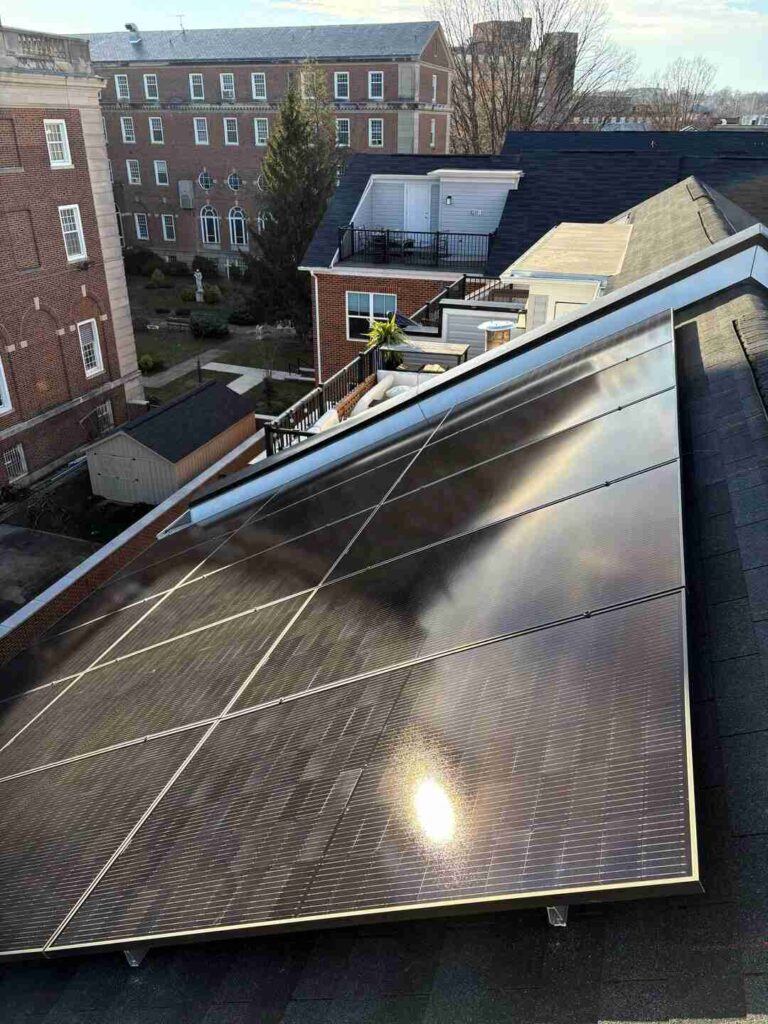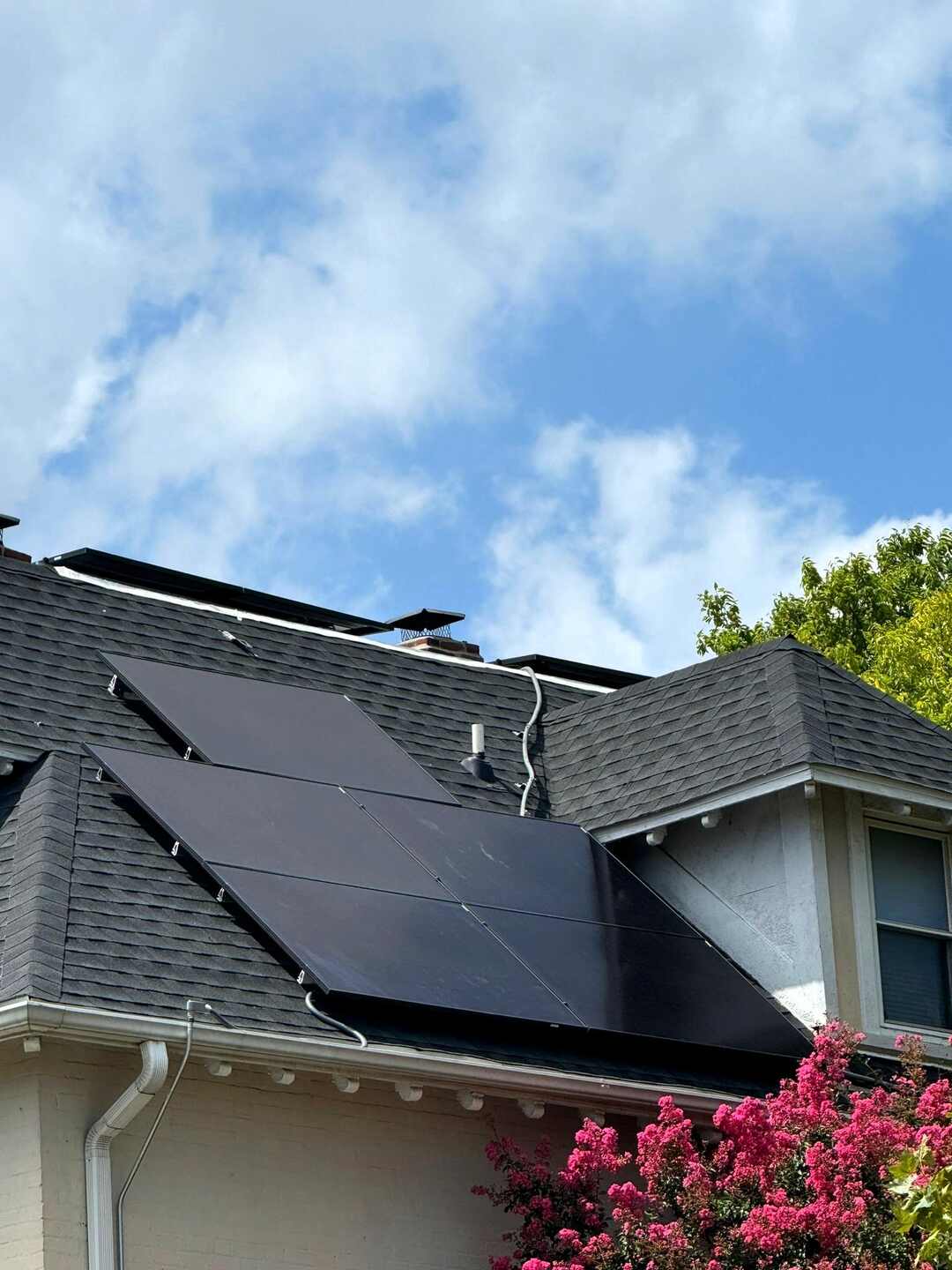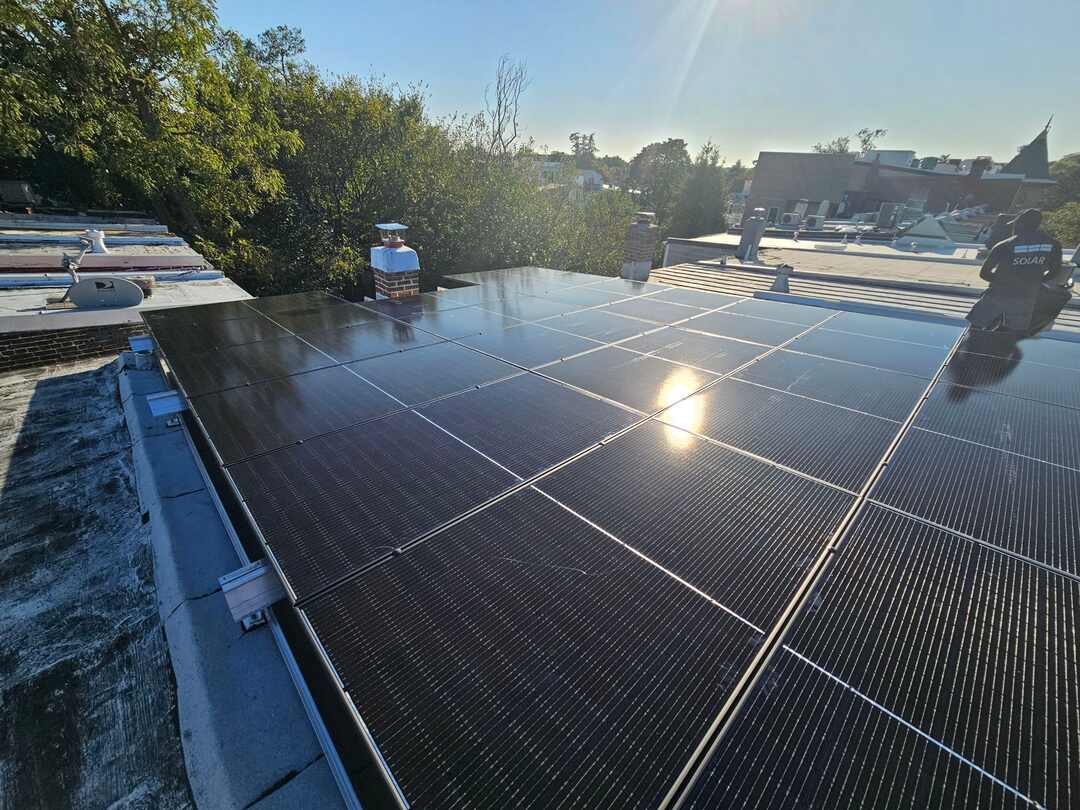Solar panel installations have only continued to grow in popularity. In fact, the solar market has seen growth of around 26% annually for the last 10 years. If going green with your energy use has been on your mind, or if you’re considering it for the first time, there are some important questions to ask before committing, so you can make a smart decision about whether a solar panel installation is right for you.

Important Benefits of Installing Solar Power
Homeowners can enjoy numerous advantages that solar can bring, including:
- Significant Savings on Electricity Bills: Homeowners can reduce their electricity bills by 50 to 80%. Net metering allows homes to sell any excess solar power back to the grid.
- Environmental Impact: Homes with solar produce three to four tons less carbon dioxide every year. Solar is one of the most accessible ways of transitioning to renewable energy.
- Increase in Home Value: Homes with solar panels see an average increase in property value of just over 4%.

Initial Considerations Before a Solar Panel Installation
Solar is an excellent option for those aiming to reduce their bills and help the environment. But is it right for you? Here are some considerations to think through first.
Evaluating Your Home’s Solar Suitability
- How old is your roof? Since solar panels last 25 to 30 years, your roof should be in good condition prior to a solar panel installation. If it is not, you may need roof repairs or a reroof first. Good news: if you do need roof work, Uprise is a roofing company as well as a solar company! Our in-house roofer can help out. And solar panels can protect a roof from damage in the future, so your investment could go even further.
- What roofing material do you have? Shingle or flat roofs (such as tar and gravel or TPO) are especially great for solar!
- How much direct sunlight does your roof receive? Is your roof shaded from trees or does it receive full sun? Which direction does it face? South-facing roofs are best for solar, although east- and west-facing roofs are excellent as well.
- How much energy does your home consume? Solar installations should be designed based on a home’s current and past electricity usage. (On average, U.S. homes consume just over 10,000 kilowatt-hours every year.)
Financial Implications of Switching to Solar
Combating climate change is one main reason to go solar, but it is not the only reason. Homeowners should also understand how their finances will change.
- Solar Financing Options: Homeowners can use solar loans, upfront purchases, and power purchase agreements (PPAs) to go solar. Uprise’s PPA allows you to take advantage of solar even if you don’t want to own your solar system. Maintenance is on us for the first 20 years. As many as 60% of solar installations rely on loans. Learn more about your financing options with Uprise in this blog post.
- Return on Investment: It usually takes multiple years to pay back a solar panel installation, depending on system size, electricity costs, and incentives. In DC, the solar payback period is usually around three to five years. That figure is closer to 10 years in Virginia and anywhere from four to 10 years in Maryland.
Available Solar Incentives and Rebates
Homeowners can take advantage of federal and state incentives to make solar more affordable:
- Federal Solar Tax Credit: This 30% tax credit allows homeowners to reduce how much they owe in income taxes according to how much their solar panel installation cost. However, you’ll need to owe taxes in order to take advantage of this incentive. If you don’t owe as much as the credit could provide, you can spread redemption out over multiple years.
- State and Local Incentives: States offer different incentives for going solar. Maryland is home to the Maryland Solar Access Program, which provides thousands of dollars to homeowners to make their solar panel installation more financially accessible. Virginia, DC, and Maryland all offer property tax exemptions for solar installations. And Solar Renewable Energy Certificates (SRECs) allow homeowners to sell renewable energy credits for additional income — DC’s SREC market is particularly good.
- Net Metering: Net metering policies exist in 34 states plus DC and Puerto Rico. As mentioned above, this incentive allows homeowners to sell excess energy back to grid companies and receive compensation, usually in the form of bill credits.
Technology Considerations
Uprise Solar opts for optimal products to help homeowners achieve energy goals. We install Tier 1 400-watt all-black solar panels, Enphase microinverters, and IronRidge XR racking systems to provide efficiency, durability, and aesthetics.
For homes seeking energy storage, Uprise installs FranklinWH batteries. They’re affordable, easy to install, and currently the safest battery on the market.
The Solar Panel Installation Process
Once you decide solar is a smart choice for you, you’ll need to select a team you can trust. Look for a licensed and insured solar company that’s a full EPC (engineering, procurement, construction) instead of just a sales front. Many solar buyers rely on customer reviews and word of mouth when choosing an installer, so don’t forget to check experiences others have shared!
Once you’ve selected your preferred installer, expect the process to take around two to three months. This timeframe encompasses everything from approving your contract to permitting to system installation to interconnection and approval from your utility company.
Maintenance and Longevity of Solar Systems
Homeowners should understand what goes into their solar system, not just in cost but also in maintenance. Solar panels are generally low maintenance, and here in the DMV, the rain we receive will clean the panels for you!
Most solar panels last 25 to 30 years (or even longer), with a yearly performance degradation rate of 0.5-1%. At that 25- or 30- year mark, they’ll still function, just with less efficiency than when they were first installed. Be sure to carefully select an installer who uses panels with a standard warranty (25 years). Be aware that inverters and batteries typically have shorter warranties (five to 10 years).

Is a Solar Panel Installation Right for Your Home?
Solar power illuminates a future of greener energy and lower utility bills. Homeowners should know about the financial savings, environmental benefits, and more that make solar a compelling option, but there are plenty of misconceptions, too (which we debunk here!)
It is essential to rely on installers who customize your solar array to your specific home and lifestyle. Contact Uprise Solar to get a personalized quote and evaluate if solar is the right choice for your home!
